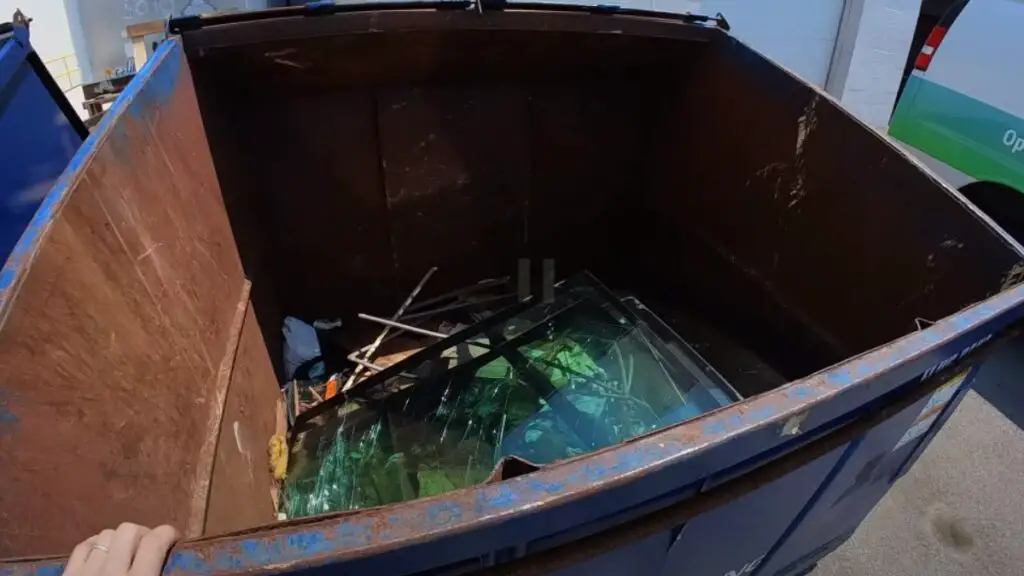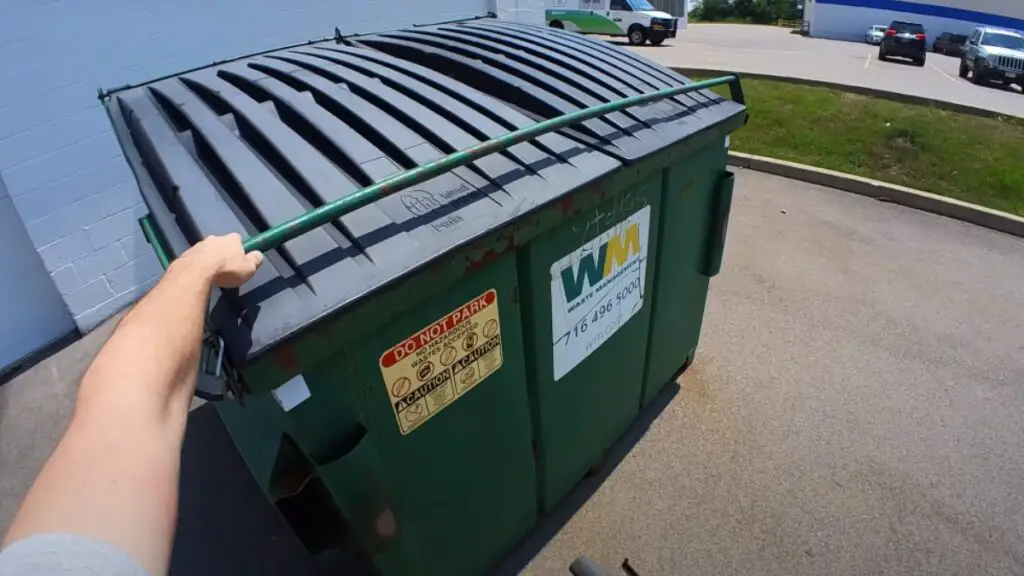Can you believe that over 40% of food in America is wasted while being perfectly edible?
This statistic brings to light Dumpster Diving, which is especially prevalent in Washington.
But then a question comes: is it a legal activity, what could happen if you are caught, what are fines?
So, in this article we will explore the dumpster diving laws and whether it is legal in washington.
Let’s begin!
Washington Dumpster Diving

Washington State, characterized by bustling cities and expansive shopping centers, which offers a diverse landscape for dumpster diving.
Seattle is the most populous city in Washington, which is the home to large shopping districts such as Pike Place Market and Westlake Center.
These commercial hubs generate significant amounts of waste, much of which can be valuable to skilled dumpster divers.
According to Seattle Public Utilities, the city produced over 347,195 tons of solid waste in 2017 alone, indicating ample opportunities for dumpster diving.
Similarly, the city of Spokane, with its numerous retail outlets and shopping centers such as River Park Square, also generates substantial waste.
Smaller towns like Bellingham, known for its vibrant student population, which also provide an interesting mix of discarded items.
Is Dumpster Diving Legal in Washington State?
According to Washington state law, dumpster diving, or the act of recovering discarded items from a dumpster, is not explicitly illegal.
However,you should note that if the trash or dumpster is on private property or explicitly marked with “No Trespassing” signs, you should stay away from it.
In this situation diving could be considered a form of trespassing, a misdemeanor that carries a maximum penalty of 90 days in jail and a $1,000 fine.
Moreover, according to RCW 9A.52.070, if you’re found in possession of stolen property originally discarded in a dumpster, you may be charged with a gross misdemeanor.
So, laws can vary by locality within the state, you should always check with local laws and regulations before dumpster diving.
Is Dumpster Diving at night illegal in Washington?
There is no law which says that dumpster diving at night time in Washington is illegal, regardless of the time of day.
However, if the dumpster is located on private property, accessing it without permission could be classified as trespassing, which is illegal.
And, if a dumpster is locked or clearly marked as private, attempting to rummage through it can also be considered illegal.
Moreover, dumpster diving can expose you to health and safety hazards, so this should be taken into consideration as well.
Best places to go Dumpster Diving in Washington
The state offers numerous opportunities for dumpster diving; with its urban centers and diverse array of retail and dining outlets
Seattle, the state’s largest city, is particularly noteworthy.
The Capitol Hill area is a preferred choice; because of an abundance of residential and retail complexes.
In terms of retail dumpster diving, you should check out the University District, which boasts a plethora of shops and eateries.
For grocery dumpster diving, Trader Joe’s and Whole Foods often dispose of food that’s nearing its sell-by date but is still consumable.
Lastly, according to the 2018 U.S. Census, Washington State generates over 5.3 million tons of garbage annually.
While this number is staggering, it also indicates a significant potential for dumpster divers to find hidden treasures, and contribute to reducing waste.
So, if you are planning to dumpster dive at Kansas, Arkansas, or Texas; you should check these state laws before going to your hunt.
How much money can you make dumpster diving in Washington?
Your earnings from dumpster diving can vary significantly depending on the time dedicated, the types of locations targeted, and your experience & knowledge.
In Washington, dumpster divers can find a variety of items like electronics, furniture, clothing, and even food.
Some divers have reported making up to $250 per week reselling their finds, while others can make up to $30,000 a year.
It’s worth noting, however, that these figures are at the higher end of the spectrum and may not be typical.
So, remember that dumpster diving requires a significant amount of time, skill, and sometimes luck.
Best time to dumpster dive in Washington
Data suggests that the best days to go dumpster diving are Tuesdays and Wednesdays.
As for the time, it’s advisable to begin your search either early in the morning (5:00 AM to 7:00 AM).
When businesses are likely to have discarded the previous day’s unsold items, or late at night (after 9:00 PM) once businesses have closed for the day.
However, you should respect private property and adhere to local laws and regulations concerning dumpster diving.
What are Dumpster Diving Threats?
A 2019 report from Javelin Strategy & Research revealed that dumpster diving, despite being an old-fashioned technique, contributed to nearly 14% of all identity theft cases within that year.
In a corporate context, it poses even graver threats.
A 2017 IBM Security study discovered that businesses incur an average cost of $3.62 million per data breach, with dumpster diving being a significant source of such breaches.
Confidential documents, discarded without proper shredding or destruction, can reveal sensitive information about operations, financials, or employees, potentially leading to devastating consequences.
So, it’s crucial for individuals and organizations alike to implement secure document disposal policies, such as the use of shredders or dedicated disposal services, to mitigate these risks.

Frederick Perez is the founder of Scrape Dude. He loves exploring and finding hidden treasures in unexpected places. Frederick has been dumpster diving and gold panning for years, turning his hobby into our website to share his adventures. He’s known for his friendly advice and exciting stories, inspiring others to discover the joy in these unique hobbies. His expertise makes Scrape Dude a trusted and fun place to learn and explore.


